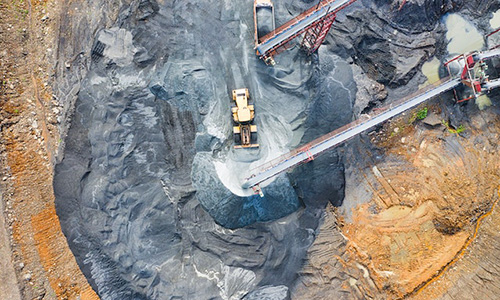
Mineral processing is key to the production of lithium-ion battery technologies. For example, a third of the electric vehicle (EV) production cost results from mineral processing and extraction. Yet other constituents besides lithium are critical for producing a lithium-ion battery. Technologies to store energy rely on mineral processing to refine the materials needed to power many modern devices, buildings, and even cities.
Mineral Processing to Produce Lithium-Ion Battery Technologies
Lithium is extracted from lepidolite, petalite, or spodumene and saline aquifers known as brines. As the lightest metallic element, lithium presents the highest electrochemical properties, which is why lithium-ion battery technologies are preferred over other types of energy storage. When combined with other light metals like aluminum or manganese, stronger yet lightweight alloys result.
Processing lithium from brine is the most common extraction method, as mineable sources are rare, with filtration equipment sometimes used to aid mineral processing. Lithium-ion battery technologies rely on other elements like aluminum, cobalt, graphite, iron, manganese, and nickel, depending on the exact type of lithium-ion battery. Technologies for energy storage continue to advance, allowing use of rarer elements like cobalt, lithium, and manganese in lower proportions.
Extraction
The third and fourth most common elements in the Earth’s crust are aluminum and iron, with the former extracted from bauxite ore, and both metals are also readily recyclable. Graphite is crystalized carbon found in igneous and metamorphic rocks, with conveyors used to transport extracted ore. Cobalt is most often found with other elements like copper and nickel, though it is sometimes mined alone. More common than cobalt or lithium, manganese comes from pyrolusite mined from shallow open pits. Nickel ores are either lateritic or sulfidic, with the former found at various depths and the latter often extracted with copper ore. Lump breakers are often used to break down ores prior to further mineral processing.
Mineral Processing
Lithium-ion battery technologies depend on producing lithium sulfate or lithium chloride that’s then crystalized, separated, and dried to produce lithium hydroxide, for which fluid bed dryers are often used. Mineral processing during this stage involves material handling equipment that can include assorted conveyers, industrial mixers and mills, as well as rotary drums and disk pelletizers. Once mineral processing applications produce battery-grade materials, manufacturing can begin.
Manufacturing & Recycling
Mineral processing results in powders used to make electrodes. Filling, welding, and winding are required for manufacturing cells of a lithium-ion battery. Technologies most commonly use the following combinations of materials:
- lithium cobalt oxide (LCO)
- lithium iron phosphate (LFP)
- lithium manganese oxide (LMO)
- lithium nickel cobalt aluminum oxide (NCA)
- lithium nickel manganese cobalt oxide (NMC)
Battery cells go through a process of charging and discharging before they’re ready for use. Though a nascent part of mineral processing for lithium-ion batter technologies, recycling will drive future production. These recycling operations will use equipment that includes granulators, hammer mills, rotary kilns, screening equipment and shredders.
Applications for Lithium-Ion Battery Technologies
Lithium-ion battery technologies do more than power EVs and are used in various items that include:
- Digital cameras
- Electric toothbrushes
- Flashlights and headlamps
- Handheld cordless power tools
- Laptops
- Medical devices like blood pressure monitors, defibrillators, oximeters and pacemakers
- Rechargeable electric toys
- Smartphones
- Unmanned aviation vehicles (UAVs)
- Vaping devices
Energy storage systems featuring lithium-ion battery technologies are also increasingly being used to ensure a reliable supply of electricity for commercial, municipal, and residential buildings.
To learn more about our mineral processing equipment for producing lithium-ion batteries, contact S. Howes today.